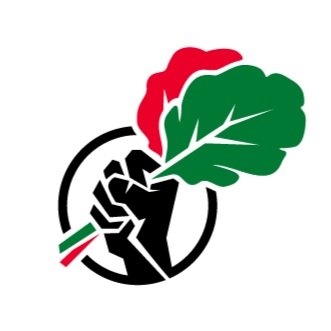Public Comment on USDA Department Reorganization Plan
The National Black Food & Justice Alliance (NBFJA) has submitted a public comment in strong opposition to the USDA’s proposed reorganization plan. While USDA has invited public comments, the process lacks transparency. There is no public record of responses and limited time for meaningful participation.
In our effort to be transparent and accountable to our members and communities, we are sharing our full public comment below.
Email: info@blackfoodjustice.org
September 26, 2025
Submitted via email: reorganization@usda.gov
Re: Press Release No.: 0185.25 – National Black Food & Justice Alliance Public Comment on USDA Department Reorganization Plan
Dear Secretary Rollins and USDA Leadership,
On behalf of the National Black Food and Justice Alliance (NBFJA) we submit this comment in strong opposition to the United States Department of Agriculture’s proposed reorganization as outlined in the SM 1078-015 issued by Secretary Rollins on July 24, 2025. The memorandum was issued authorizing consolidation, relocation, and restructuring of USDA functions. While presented as efficiency measures, these actions risk dismantling critical services and access points for farmers and communities.
The NBFJA is a coalition of Black led organizations advancing Black self-determination toward food sovereignty, land justice, and liberation. Our members are farmers, cooperators, organizers, and advocates who know firsthand how USDA policies shape the daily realities of Black farmers, land stewards, and communities.
Fundamental Concerns
Erosion of Access and Service Capacity
USDA has already significantly reduced local staff and canceled innovative programs such as Regional Food Business Centers and local food programs designed to support local schools, food banks, farm businesses, and underserved farmers and communities. This directly contradicts Principle 1 which states that the size of USDA’s workforce should align with financial resources. That approach will worsen shortages of USDA staff already failing to meet the needs of small and Black farmers. Moving 2600 staff to five hubs will make it nearly impossible for Black farmers and limited resource communities already struggling with accessibility to USDA programs and services to get the support they need.
Our farmers, like many small American farms, are beyond their bandwidth to piecemeal funds let alone navigate a complex reorganization of vital USDA services.
For example, one of our members farming in the Southeast reported that the recent federal funding freeze has made it nearly impossible to cover daily operations needed to feed their community. They have been forced to scramble for new and uncertain funding sources at the same time USDA services are being reduced, compounding instability, and undermining their ability to serve their neighbors.
Risk of Increased Discrimination
Changing structures without safeguards and access to critical services will increase incidents of discrimination and make reporting more difficult for marginalized farmers.
Disruption to Nutrition Programs
The National WIC Association warns this reorganization could disrupt services for 6.9 million women, infants, and children.
SNAP supports more than 42 million Americans. Cuts and relocations jeopardize these lifelines.
Food assistance programs like WIC, SNAP, and school nutrition are lifelines for millions of families. Disruption caused by relocations will weaken their reach and reliability, potentially widening the hunger gap in already pressured communities.
Loss of Expertise and Workforce Stability
Previous USDA relocations of the National Institute of Food and Agriculture (NIFA) and the Economic Research Service (ERS) research agencies led to 50 percent attrition in some offices. USDA frames this under Principle 3 eliminating management layers but in practice it eliminates critical expertise and capacity.
USDA has already lost over 18,000 employees this year, 16,000 due to the short-sighted Deferred Resignation Program and another 2,000 from employee transfers, causing disruptions in program servicing and loss of crucial expertise.
Additional relocations will further destabilize the federal workforce and reduce program effectiveness, potentially costing tax payers in re-hires and training.
Decrease in Black Women Employed in Government
Black women have historically been a critical part of the USDA and broader federal workforce especially in Washington DC. Reorganization and relocation will decrease opportunities for Black women to maintain or secure positions in USDA leadership and staff roles. The previous relocation of NIFA resulted in a nearly 30 percentage point decrease in Black or African American staff. This undermines both equity and representation in government.
Undermining Accountability and Transparency
Launching this plan with a limited comment period, no public view to responses, and no clear roadmap undermines promises of transparency, accountability, and effectiveness.
Recommendations
We call on USDA to:
Withdraw the current reorganization plan and conduct a full equity and civil rights impact assessment.
Extend the public comment period to at least 90 days to allow meaningful participation from affected communities.
Engage Black farmers, Indigenous communities, low income families, and impacted USDA staff in a transparent community led process.
Establish a Community Advisory Board with representation from Black-led farm and food justice organizations to review and shape any restructuring proposals.
Protect and strengthen nutrition programs including WIC, SNAP, and school meals.
Safeguard civil rights reporting and oversight through an independent review structure.
Retain and support USDA staff to preserve expertise and institutional knowledge and avoid taxpayer waste on rehires and retraining.
Ensure workforce equity by protecting opportunities for Black women and other historically underrepresented employees through a workforce retention and diversity plan.
Require Congressional hearings before USDA proceeds with any relocation or consolidation.
The USDA reorganization plan would dismantle key structures of accountability and equity, deepen longstanding disparities, and jeopardize the health and livelihood of millions. Instead of displacing staff and dismantling programs, USDA should strengthen local service delivery, equity oversight, and workforce retention strategies to ensure the Department meets its obligations to all communities.
The National Black Food and Justice Alliance urges USDA to withdraw this plan, engage in transparent equity centered dialogue, and pursue reforms that strengthen trust, access, and justice.
Onward,
Dr. Jasmine Jackson
Co-Executive Director
National Black Food and Justice Alliance

